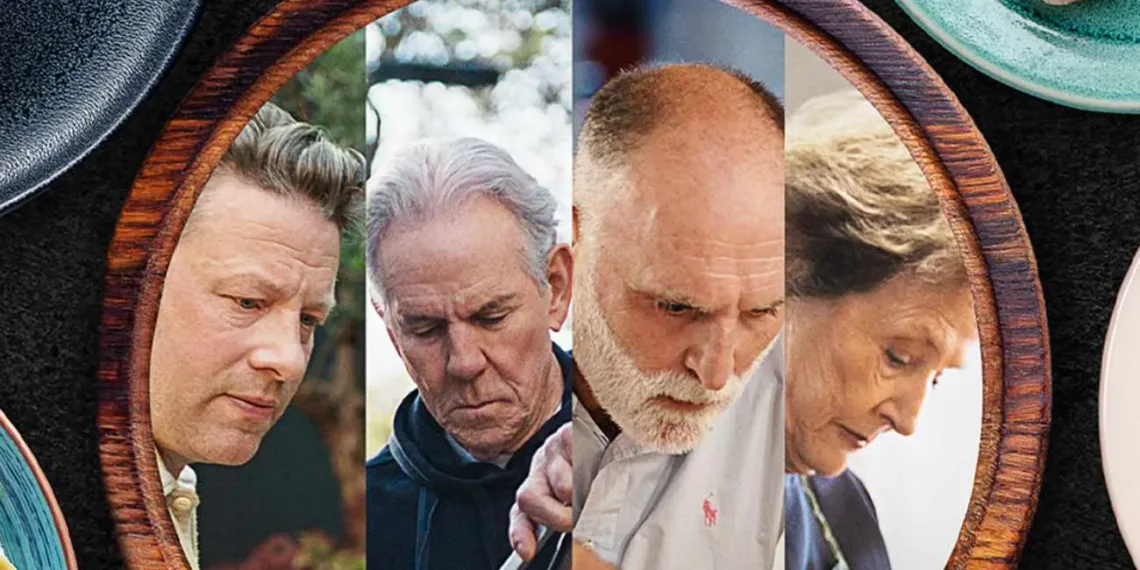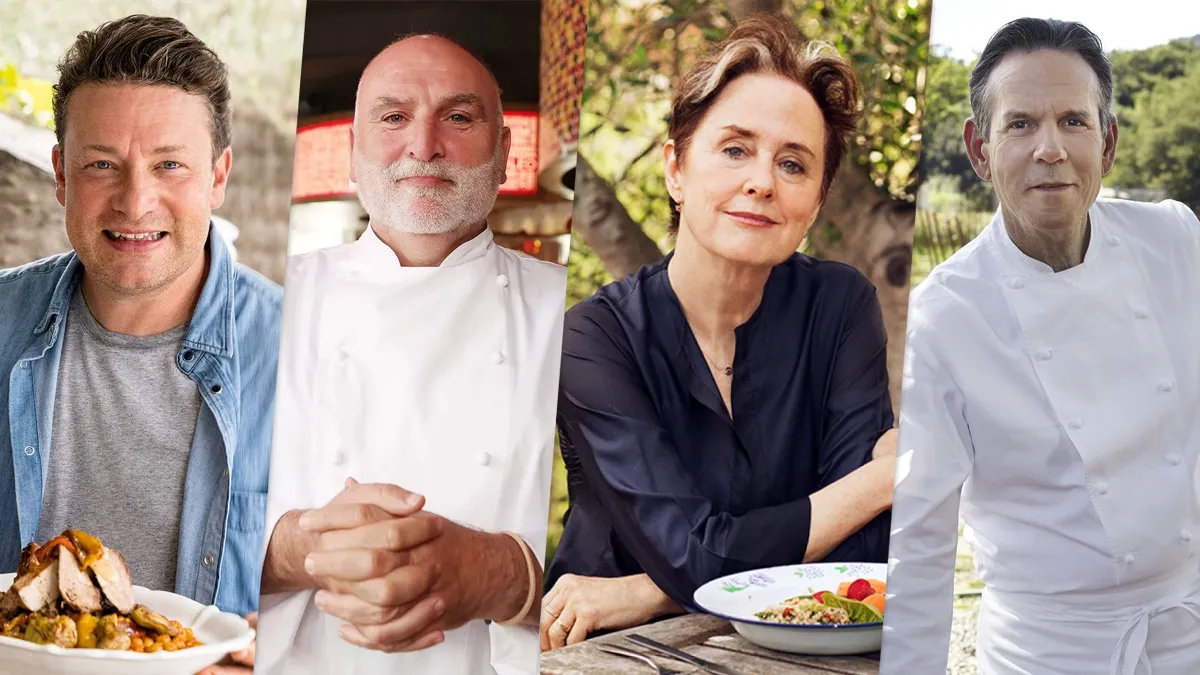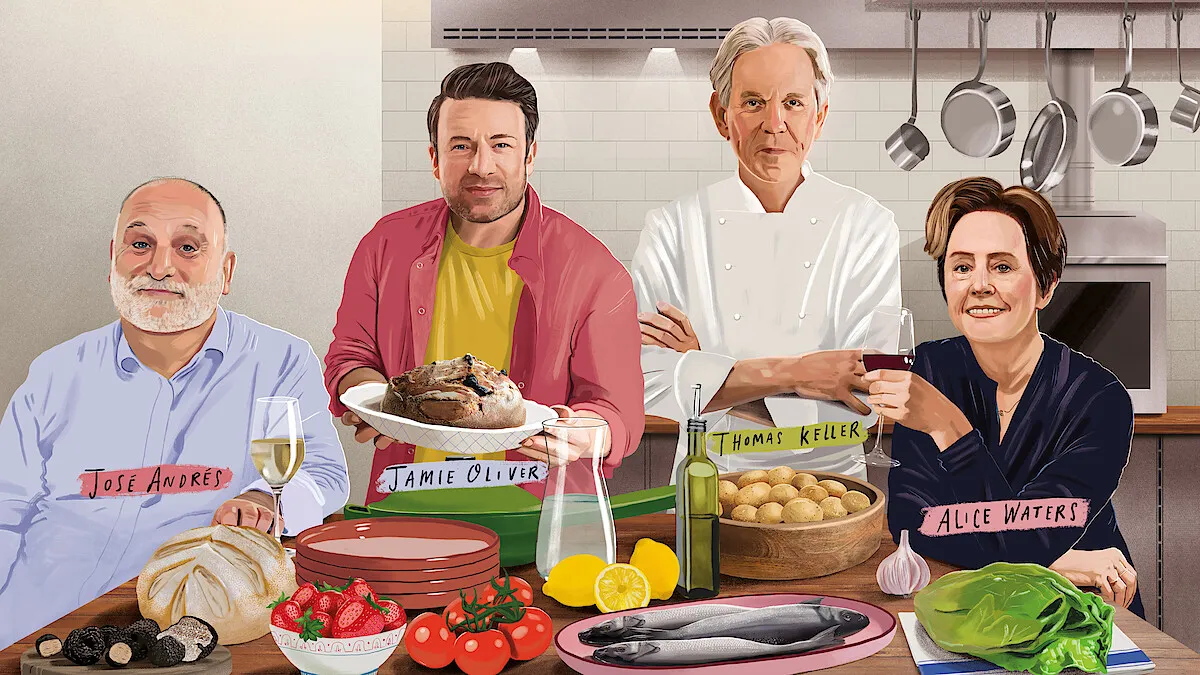The food documentary has become a television staple, a reliable format of sumptuous visuals and reverential profiles. For a decade, Chef’s Table has been a benchmark of the genre, and its anniversary season, Legends, does not deviate from the formula. It instead sharpens its focus on four figures whose reputations precede them: Thomas Keller, Jamie Oliver, José Andrés, and Alice Waters.
The series presents itself as a commemorative collection of portraits, examining the lives behind the lore. The program’s premise is that to understand their food, one must first understand their personal histories, the professional missteps, and the philosophical shifts that guided them.
The show operates with a quiet confidence, asserting that these are not just cooks; they are architects of contemporary food culture, and their stories are essential chapters in modern cuisine’s history. It sets out to chronicle how influence is built, one dish and one decision at a time.
The Anatomy of a Legend
Each episode is a carefully constructed biography, designed to reinforce the subject’s established public persona. Thomas Keller’s story is framed as a narrative of redemption, a path from an arrogant young chef to the collaborative master of two three-star Michelin restaurants, The French Laundry and Per Se.
His invention of a savory cone for caviar is presented as a key moment in his effort to make formal dining less intimidating. Alice Waters of Chez Panisse is the quiet revolutionary, the founder of the farm-to-table ideology. Her profile is one of steadfast principle, acknowledging moments when her ethos was criticized as disconnected from public reality.
The episode on Jamie Oliver presents him as a cultural force who altered British television and made cooking accessible. His campaign for better school meals is the story’s central conflict, documenting his struggles against bureaucratic and public indifference. José Andrés’s profile is structured differently. It is less about overcoming past failures and more a portrait of continuous action, focusing on his humanitarian efforts with World Central Kitchen, which connects his culinary skill to global crisis relief.
The Recipe for Storytelling
The series adheres to a production method that is both its greatest strength and its most predictable feature. Visually, each frame is meticulously composed. The food is photographed with a lush, almost devotional, appreciation that elevates each ingredient to the status of an artifact.
This rich visual language is the program’s signature. Narratively, each episode follows a familiar arc. The structure is built from interviews with the chefs, their families, and mentees like Grant Achatz, who appears to bolster Keller’s profile. This creates a controlled story of progression: early difficulties give way to professional triumphs.
The storytelling is effective and clean, moving from past events to the present with a clear sense of purpose. The focus remains squarely on the individual’s life, treating the food they create as the physical manifestation of their personal development. It is a reliable, if slightly repetitive, way to build a myth.
Influence as the Main Course
The final argument of Chef’s Table: Legends is that the work of its subjects has an effect that reaches far beyond their restaurant doors. The series proposes that innovation in elite kitchens eventually trickles down to shape broader culture.
Each profile serves as evidence for this claim. Alice Waters’s insistence on sourcing is shown to have shifted public consciousness toward local ingredients. Jamie Oliver’s activism is depicted as a direct influence on institutional food policy.
José Andrés’s work fuses the worlds of fine dining and disaster aid, while Thomas Keller’s career is presented as a decades-long project to refine and evolve the formal meal. The show leaves viewers with the idea that these chefs did not simply cook for a select few. Instead, they introduced ideas and standards that have slowly altered how millions of people approach food, demonstrating that what begins on a single plate can eventually redefine the entire meal.
Chef’s Table: Legends is a four-episode Netflix docuseries launched on April 28, 2025, celebrating a decade of Chef’s Table by profiling culinary icons José Andrés, Thomas Keller, Alice Waters, and Jamie Oliver.
Full Credits
Director: Brian McGinn, Clay Jeter, David Gelb, Andrew Fried
Producers & Executive Producers: David Gelb, Andrew Fried, Brian McGinn, Abigail Fuller, Danny O’Malley, Supper Club, Boardwalk Pictures
Cast: José Andrés, Thomas Keller, Alice Waters, Jamie Oliver
Director of Photography (Cinematographers): Adam Bricker, Will Basanta, Matthew Chavez, Chloe Weaver
Editors: Brad Grossman, Jason Moll, Matt Mascia, Robinson Eng, Jay Garcia, Brianne Hunt, Brian Triebwasser, Hannah Tripp, Dante Pasquinelli
Composer: Duncan Thum
The Review
Chef's Table: Legends Season 1
Chef's Table: Legends is a visually stunning and meticulously crafted documentary that succeeds in canonizing its subjects. While its narrative formula can feel repetitive, the series offers a valuable examination of how four culinary pioneers shaped modern food culture far beyond their own kitchens. It’s a polished, intelligent, and respectful production that delivers exactly what it promises, even if it takes few creative risks in its storytelling. It reinforces the series' status as a benchmark for the genre.
PROS
- Visually rich and beautifully filmed.
- Provides a clear look at each chef's cultural impact.
- Well-structured narratives make each story easy to follow.
CONS
- The storytelling can be formulaic and predictable.
- Maintains a reverential tone that avoids deeper critique.


















































